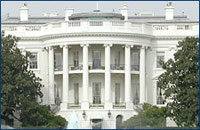Living in Flyover Country
 There is nothing like traveling to an international law conference in New York City to be reminded of the fact that Milwaukee is in flyover country. As in the place where most East Coasters might stop on their way out west or perhaps have been once or twice to visit friends. It particularly struck me this time — perhaps it was the number of times I needed to explain to the international law professors from other countries where Milwaukee was located or, more likely, the piercing question from no doubt a well-meaning colleague — you still live in Milwaukee, are you happy there? — that stuck in my craw. After all, I visit New York all the time. I live there for the month of August in my grandmother’s beach house. I married a New Yorker. If I was going to be offended, one would have imagined it would have happened long ago. But no, it was really this visit, this time.
There is nothing like traveling to an international law conference in New York City to be reminded of the fact that Milwaukee is in flyover country. As in the place where most East Coasters might stop on their way out west or perhaps have been once or twice to visit friends. It particularly struck me this time — perhaps it was the number of times I needed to explain to the international law professors from other countries where Milwaukee was located or, more likely, the piercing question from no doubt a well-meaning colleague — you still live in Milwaukee, are you happy there? — that stuck in my craw. After all, I visit New York all the time. I live there for the month of August in my grandmother’s beach house. I married a New Yorker. If I was going to be offended, one would have imagined it would have happened long ago. But no, it was really this visit, this time.

